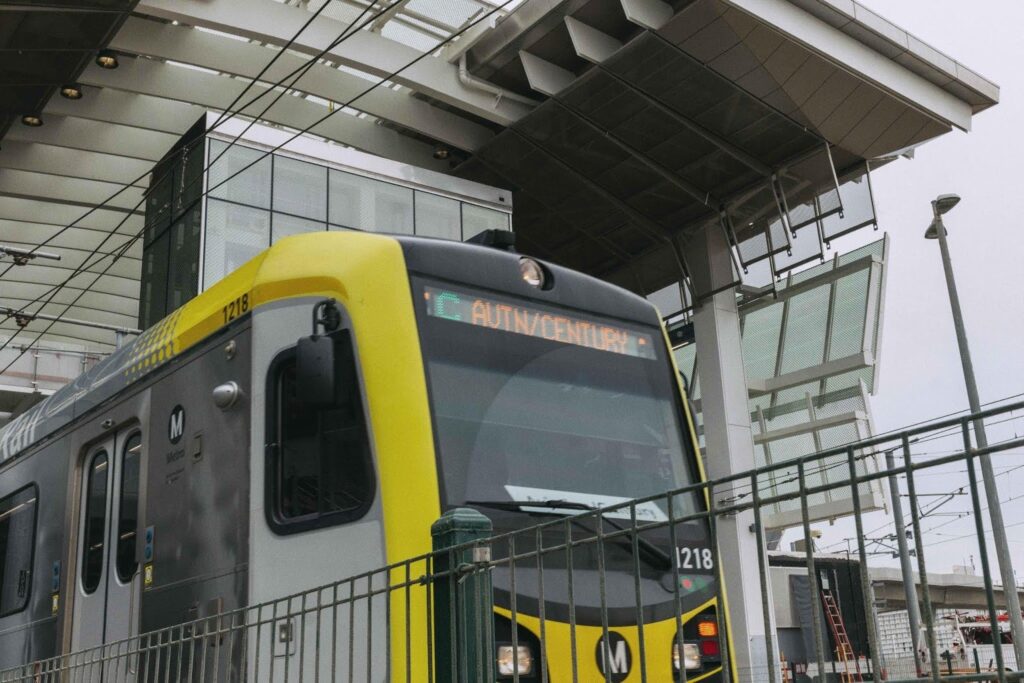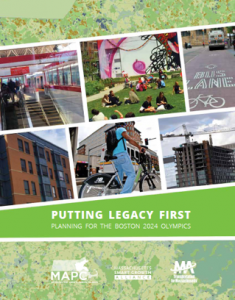
Boston’s Olympic bid aims to be the first where you don’t need a car
Three Massachusetts-based organizations recently published Putting Legacy First, a report that makes a series of recommendations intended to support the official 2024 Boston Olympics bid. Their smart recommendations focus on ensuring that the transportation investments made to support a walkable, transit-oriented Olympics and Paralympics will also be primed to serve the Bay Staters well for years to come.
The authors recognize the potential of transportation as a catalyst for short and long-term change. Improvements that the city and state officials can start on now will improve Boston immediately, like addressing the backlog of MBTA’s maintenance needs or focusing future development on creating more walkable, bikeable and livable neighborhoods in affected areas, will also go a long way to making a more widely supported bid. Additionally, by rallying around the challenge of being the first Olympic and Paralympic games that visitors can attend car-free, the authors pose a challenge to federal, state and local officials to think about transportation for the disabled and enabled populations equally.
“We’ve known for a long time that our transportation system – especially the MBTA – needed lots of maintenance and investment just like many transit systems throughout our country. This winter certainly proved it. The Games could provide the deadline that the Boston area may need to create a system Bostonians can be proud of, but it requires that the state, cities and towns, and the Olympic host committee work together to overcome the political and financial barriers that stand in the way of a world-class transportation system,” said Kristina Egan, director of Transportation for Massachusetts.
How do they propose to achieve this goal? Putting Legacy First has eight transportation recommendations,  a few of which are summarized below:
a few of which are summarized below:
- The Olympics and Paralympics should serve as a catalyst to accelerate efforts to make the MBTA fully compliant with the Americans with Disabilities Act (ADA).
- Infrastructure improvements that are solely related to the Games should be financed entirely by private sources. Projects that generate shared benefits to the Games as well as long-term public benefits should be financed by a mix of public and private funds.
- Since all the main venues are along the coast or Charles River, the report strongly suggests Olympic planners use the Games as an opportunity to build resilience to climate change, sea level rise and storm surges.
One concern expressed by the critics of the Boston 2024 bid is the fear that citizens will wind up paying for a large amount of new infrastructure while receiving few of the benefits. What they view as a current lack of public information and participation adds to this concern. In response, the report offers ways to mitigate those concerns by clearly defining public and private sector roles, as well as recommending that the Commission, “maximize public input and participation with a special focus on under-represented groups”.
“We have to put legacy first,” said Marc Draisen, executive director of MAPC, whose staff are the prime authors of the report. “It’s not just about writing a winning bid and making the Games a success; it’s about making sure our region ends up with more affordable homes, better jobs, beautiful parks, and a 21st century transportation system. These things won’t just happen by themselves. We have to leverage the Olympic bid to make them happen, and the sooner the better.”
While the International Olympic Committee will not announce the 2024 host city until 2017, many civic-minded groups are ready to fight for a blueprint that ensures their investments into such an opportunity benefit the greater Boston region and have lasting positive effects for decades to come.
Putting Legacy First was written and published jointly by the Massachusetts Smart Growth Alliance, Transportation for Massachusetts and the Metropolitan Area Planning Council (a T4A member).



